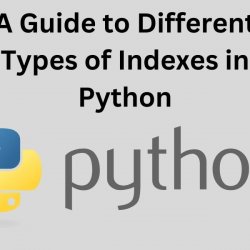Advance the practical side of your coding skills with Coding Stories


Introduction to Coding Stories
Coding Stories provide an engaging and interactive learning environment to help you master the art of programming. This powerful tool introduces coding through the lens of storytelling, helping you unlock the depths of your programming potential.
Coding Stories provide a great way to learn and apply essential coding techniques and tools. Through this unique approach, you can get fundamental insight into all aspects of coding, from problem-solving strategies and solutions to using special programming tools designed to complete various tasks. By focusing on the story behind each code challenge, Coding Stories create an immersive learning experience that helps you understand how different elements work together in practice.
You can also read: Unlocking the World of Digital Real Estate | Metaverse
In addition to learning how to program effectively, Coding Stories also offers comprehensive lessons on the principles behind coding. Through interactive activities focused on expressing yourself through code, you can gain valuable knowledge about the complexities of software development and become experienced in task-building programs that are both efficient and innovative. It’s no wonder why Coding Stories has become such a popular tool among programmers; its story-driven approach enables users to understand coding concepts intuitively while simultaneously becoming more proficient in their craft.
Benefits of Coding Stories
By combining coding theory with real-life application, coding stories help you gain a better understanding of data structures and algorithms, making it easier to comprehend complex concepts and boosting analytical thinking and debugging skills.
Coding stories allow you to practice problem-solving under pressure, which allows you to hone your coding skills in a safe space with limited risk. As you work through each story, you learn more about the different ways algorithms and problem-solving techniques can be applied in real-world scenarios – something that is hard to replicate outside of such an interactive environment.
By using coding stories as part of your learning process, you are creating a foundation for success as well as sharpening your analytical skills. These skills will help you write computer code and can be applied in other areas such as research and technology-related fields. Plus, when integrated into a larger course or educational program, coding stories offer students the opportunity to not only gain practical coding experience but also develop critical thinking and decision-making capabilities.
How To Use Coding Stories to Develop Practical Skills
To maximize the effectiveness of Coding Stories it is important to understand the coding concepts and practice writing code. This will enable you to analyze and apply problem-solving techniques to real-world examples. Additionally, you can use Coding Stories to develop debugging techniques or explore coding libraries to identify industry best practices and patterns.
Coding Stories can also be used for AI/ML algorithms learning how they work and how they can be used in production systems. This can help improve the speed of execution for complex tasks while researching and exploring different algorithms you may not have come across before.
By using Coding Stories, you’ll have a better understanding of how code works in different scenarios and what are best practices when building complex logical structures. Coding Stories provide an effective way for you to advance the practical side of your coding skills without having to code everything from scratch.
Different Forms of Coding Stories
As a coder, you’re always looking for ways to advance your practical coding skills. Coding stories are an excellent way to do just that! A coding story is essentially a narrative used to convey a message about data and/or code through a creative and captivating form.
You can also read Cashier’s Check | Everything You Need to Know!
There are multiple ways to code stories. For example, you can creatively craft entertaining tales using programming languages such as HTML and Python that can help build skills. You’ll also find yourself able to analyze data more effectively when utilizing code-driven stories. This is because the format of coding stories allows you to more easily identify key patterns and trends in the data, rather than needing to read through tedious text-based accounts of its details.
When mastering coding stories, it’s important to understand that there is no one-size-fits-all approach when it comes to coding them. Different forms of coding language can be used depending on the story being told or the project being worked on, including JavaScript, CSS, ReactJS, etc. Additionally, different types of coding story formats exist such as linear narratives or interactive stories involving the user in some capacity. While playing around with various forms of both coding languages and formats can lead to positive results, utilizing the appropriate combination will ultimately yield stronger outcomes for projects both big and small.
Coding stories offer a unique way for coders to craft engaging narratives that provide effective communication between complex technical concepts and those without any understanding of programming language.
Choosing Appropriate Topics for Your Projects and Assignments
Topic Selection: When choosing a topic for your project or assignment, consider what areas you would like to explore with your coding skills. Think of areas where you could advance the practical side of your coding skills or push yourself to think in innovative ways. Additionally, when selecting a topic make sure to consider the resources available to help you in completing the project or assignment.
Project Ideas: Once you have identified an area of interest, come up with a few possible project ideas related to this area. Pick one idea that stands out as an interesting challenge, then start researching potential sources of relevant information and resources on this topic. This will help you determine whether or not this is a feasible project with enough resources available to complete it successfully.
Coding Stories: One way to develop creative thinking when selecting project topics is through Coding Stories which are bite-sized tutorials on popular coding practices where developers share their real-world stories and experiences in tackling various coding challenges. Reading these stories can help you identify potential project ideas that align with current industry trends and advancements in technology tools and platforms allowing you to come up with more creative solutions for future projects
Practical Skills: Choosing a topic also opens different avenues for developing new practical skills which can be useful in other future coding projects. Researching new concepts related to specific technologies is a great way to advance your overall knowledge base which can offer numerous advancement opportunities down the road.
Utilizing Resources & Strategies for Finding Inspiration and Issues to Solve
Coding resources are an invaluable tool when it comes to developing practical skills. Not only do they provide tutorials on various coding languages, but many can also link you with other coders who share similar interests. In addition, a variety of online tools can help break down difficult concepts into more manageable pieces, making them easier to understand.
For those who need a little more direction in their problem-solving process, strategizing is key. It’s important to understand how ideas and solutions fit together before attempting to solve the issue and identify any potential roadblocks along the way. Additionally, brainstorming is highly beneficial when it comes to finding inspiration or innovative solutions. Talking out problems with colleagues or mentors also allows for critical feedback that may be necessary to advance your coding goals.
You can also read: The Art of Service Business: Success Strategies
Aside from technical resources, there are plenty of opportunities available for coders of all levels to learn or discuss coding topics and ideas. Conferences, webinars, meetups, and hackathons are all great venues for networking with other coders and discussing innovations or areas of development. For those interested in further advancing their practical skills, Coding Stories offers hands-on training sessions that focus on developing specific coding projects with real-world applications. Many of these programs offer personalized guidance from experienced professionals, giving participants the support necessary to tackle challenging tasks with confidence.
Reassess & Refine Your Final Product
When it comes to coding, it’s important to assess and refine the final product you produce. Practical coding skills can make all the difference when it comes to producing a quality product. Coding stories are a great way to advance the practical side of your coding. By learning from and telling stories about your coding projects, you can learn how to identify mistakes, improve accuracy and add complexity to refine and reassess the quality of your products.
Telling these stories allows you to build up experience and expertise. You can troubleshoot more effectively, which ultimately leads to higher-quality products. Furthermore, by practicing different approaches and techniques in a storytelling format, you can create a diverse set of skills and knowledge that will help you become a more proficient coder.
At its core, coding requires problem-solving on both an individual level and within programming languages; Coding Stories allow coders to practice problem-solving in a comprehensive way that is also enjoyable at the same time. The best part about these stories is that they can be shared with peers so everyone can benefit from collective learning experiences. This makes sure your team has a successful outcome for any project they undertake!
Start advancing your practical coding skills with Coding Stories today! You’ll be amazed at how much faster you start producing top-notch products when you have a better understanding of problem-solving techniques in addition to being able to share ideas with your peers about refining them for greater accuracy or even adding complexity where needed.
Advanced Practical Programming with Coding Stories
Coding Stories is a valuable tool that can help advance your practical programming skills. Whether you are a beginner, intermediate, or advanced programmer, Coding Stories offers an array of programming insights and strategies to help you reach the next level of proficiency.
If you’re just starting with coding and need a helping hand to get the basics down, then stories can provide the insight and guidance necessary to build a strong foundation for further development. Coding Stories provides easy-to-follow tutorials on topics like debugging strategies, learning tools, algorithm designing, and problem-solving. It also provides examples of real-world scenarios and best practices from experienced coders. By utilizing these stories as resources to enhance your coding knowledge, you will be able to move on to more advanced levels quickly and easily.
If you’re already an experienced coder looking to take your skills to the next level, then Coding Stories can help you too! You can learn new techniques from experts in the field while deepening your understanding of existing concepts and becoming more proficient in debugging strategies. It is important for experienced coders to continually challenge themselves by pushing their boundaries so they can adapt easily to new technology while maintaining their current skill level.






Ingen kommentarer endnu